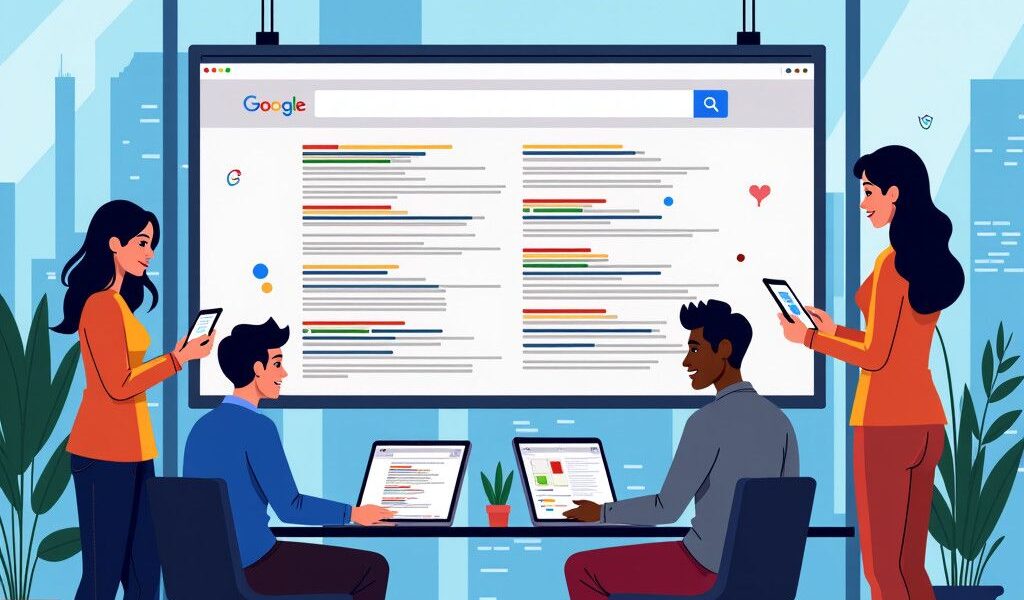Google’s latest announcement regarding enhancements to its Search features for 2025 signifies a pivotal moment for digital marketing professionals and businesses. At the forefront of these updates is Gemini 2.0, Google’s newest AI model designed to provide richer, more nuanced search results. With the official unveiling of these updates, companies must prepare for the far-reaching implications on their online presence, customer engagement, and overall digital strategies.
One of the primary highlights of this initiative is the enhancement of AI Overviews. Google’s CEO, Sundar Pichai, has shared that these AI Overviews now reach an astonishing one billion users. This impressive metric implies that users can ask a broad range of questions about various topics, ultimately leading to an evolving search experience. It doesn’t just end at simple queries; users can now engage with advanced, complex inquiries involving multi-step processes. For example, the new AI Overviews can provide answers related to advanced math equations, coding tasks, or even analyzing large datasets.
The expectations surrounding these updates are monumental. As Pichai mentions, the advanced reasoning capabilities of Gemini 2.0 equip AI Overviews with the ability to tackle multifaceted topics. This capacity for understanding sophisticated queries can significantly enhance how users interact with search engines, allowing businesses to align their content and marketing strategies more effectively with user expectations.
This intersection of AI and user experience emphasizes a need for businesses to adopt comprehensive digital marketing strategies. For instance, companies must consider how they can leverage these updates to improve their content for better visibility. With AI-driven content becoming increasingly sophisticated, creating clear, detailed, and informative materials can improve ranking on Search results by aligning with the advanced query capabilities of Gemini 2.0.
Part of the allure of Gemini 2.0 is its capability to support not just text but also multimodal inputs and outputs. According to Google DeepMind, the Gemini 2.0 Flash model surpasses its predecessors in output speed and accuracy. This model’s strength lies in its ability to process images, audio, and video alongside text, signifying a shift toward a more interactive and engaging search experience. Businesses that incorporate diverse media types into their content strategies stand to benefit greatly. For instance, including informative infographics or engaging videos on product pages can enhance user experience and capture attention more effectively than standard textual content alone.
Moreover, Gemini 2.0 Flash’s ability to integrate with tools like Google Search and run code opens up avenues for functionality that were previously unavailable. The implication here is clear: businesses can now develop sophisticated applications to enhance customer engagement. For example, an e-commerce platform could leverage Gemini 2.0 to create real-time product comparison tools or price calculators that interact seamlessly with search results.
The potential of the Project Mariner initiative, which aims to redefine user interaction with web agents through Gemini 2.0, cannot be overlooked. As digital spaces evolve, so too must the way businesses engage with customers. Project Mariner emphasizes a future where human-agent interaction becomes intuitive and dynamic. Companies should consider how to present their products and services in ways that facilitate smooth interactions between users and AI-driven agents. This might include chatbot integration on websites that can answer complex queries instantly, guided by the enhanced capabilities of the AI.
However, the success of these updates hinges on the execution, particularly in terms of maintaining user safety and ethical standards. Users have grown increasingly aware of the significance of data privacy and ethical AI use. Google’s commitment to responsible implementation will be closely monitored, and companies must be prepared to navigate any fallout related to these issues. Establishing transparent practices and securing user data should be a priority for retailers and online businesses alike.
As we approach the rollout of these updates in early 2025, it is essential for businesses to remain proactive. Engaging in A/B testing for various content formats, optimizing for advanced queries, and investing in AI-driven tools can position companies favorably as these changes take effect. Being adaptable and informed will not only enhance brand visibility but also fortify customer loyalty in an increasingly competitive digital landscape.
In conclusion, Google’s Search updates for 2025, fueled by the capabilities of Gemini 2.0, signal a transformative shift in search functionality. Companies must review their digital marketing strategies and adapt to these advancements or risk falling behind. The landscape is evolving; those who harness this change effectively will lead the way in the new era of digital engagement.
SEO Keywords: Google Search updates 2025, Gemini 2.0, AI Overviews, digital marketing strategies, e-commerce enhancement, human-agent interaction, multimodal queries.












